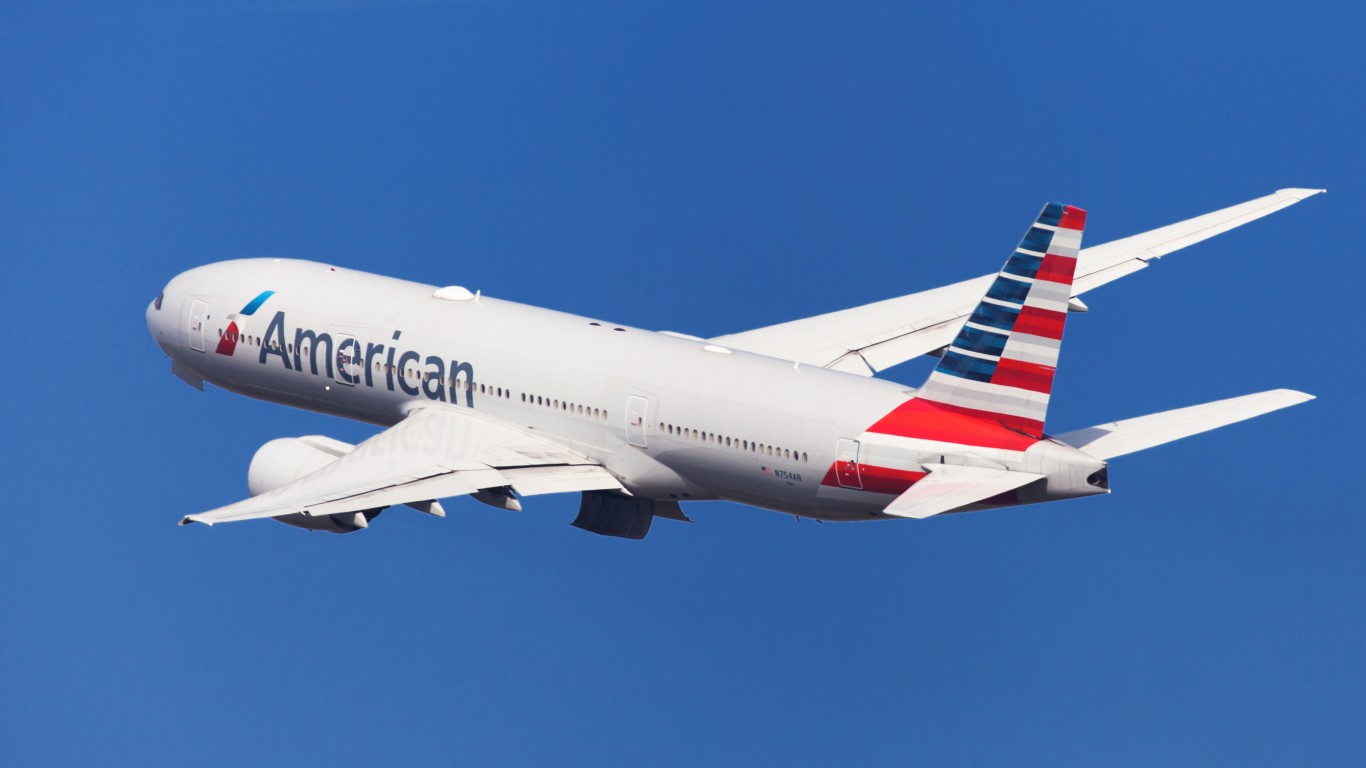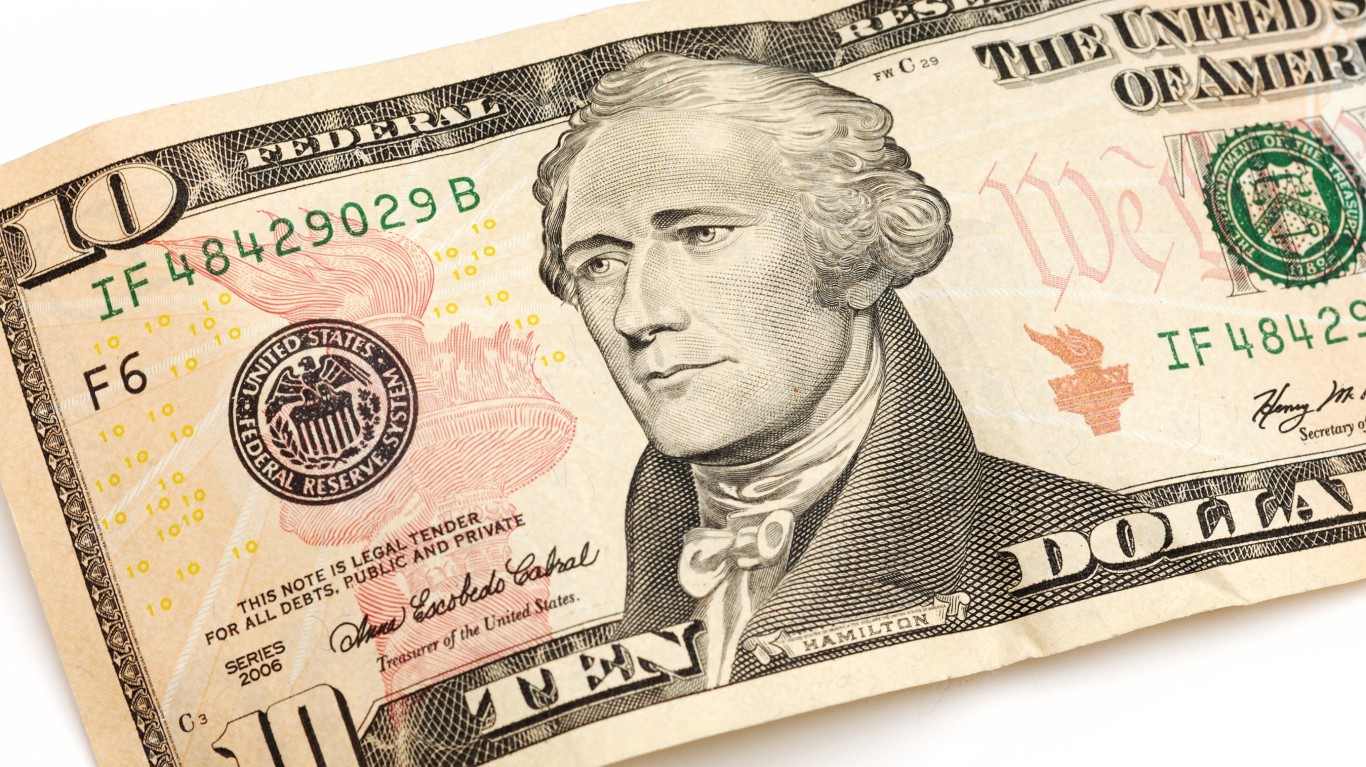
In early trading Tuesday, the Dow was down 0.32%, the S&P 500 down 0.30% and the Nasdaq down 0.11%. Bloomberg reported shortly after the opening bell that “dozens” of large-cap stocks dropped sharply before recovering. The price action could be attributable to past computer glitches that led to temporary price swings.
Before U.S. markets opened on Tuesday, General Electric beat the consensus profit estimate but missed on revenue. The company issued downside guidance for 2023, but the spin-off of the health care business and strong demand for aircraft engines sent shares up by about 0.2% in early trading.
3M missed the consensus earnings per share (EPS) estimate but beat on revenue. The Dow component issued downside revenue guidance for the 2023 fiscal year. Shares traded down about 5.5%.
D.R. Horton beat expectations on both the top and bottom lines. The company said it would release guidance on its conference call later in the morning. The stock traded up about 1.5%.
Halliburton beat the consensus EPS estimate but missed on revenue and announced a 33% quarterly per-share dividend increase to $0.16. Shares traded down about 2.4% Tuesday morning.
Johnson & Johnson also topped the consensus profit estimate but fell short on revenue. Demand for Tylenol was very strong in the fourth quarter, according to Chief Financial Officer Joseph Wolk. We are not surprised. The shares traded down by about 1%.
Lockheed Martin hammered estimates on both the top and bottom lines and issued guidance for fiscal 2023 that was in line with analysts’ consensus estimates. Shares traded up about 0.5% Tuesday morning.
Raytheon missed the consensus revenue estimate and barely surpassed the profit estimate. The defense contractor said it would realign its business into three segments (Collins Aerospace, Pratt & Whitney and Raytheon) and reorganize in the second half of this year. Investors are expecting cost-cutting, obviously, and pushed the stock up by about 0.8% in late morning trading.
Verizon met the consensus EPS estimate and beat on revenue. The telecom giant issued downside guidance, but a late morning reversal has sent shares higher, up 1.6% on the day.
Look for quarterly results from ASML, Microsoft and Texas Instruments late Tuesday or early Wednesday. AT&T, Boeing, Freeport-McMoRan and NextEra Energy are also expected to report earnings before markets open on Wednesday. Later that day, CSX, IBM, Lam Research and Tesla step into the earnings spotlight.
First thing Thursday morning, these three heavily traded companies are set to report quarterly results.
American Airlines
Over the past 12 months, American Airlines Group Inc. (NASDAQ: AAL) has seen its share price decline by about 1.8%. On the strength of United’s earnings, however, shares have gained nearly 27% in January. Passenger traffic has reached pre-pandemic levels, fuel prices have moderated and no glitches in airline flights seem to be strong enough to quash demand for air travel. Guidance could make or break American’s recent good fortune.
Analysts remain extremely cautious on the stock. Of 21 brokerages covering it, 16 have a Hold rating and just two have Buy or Strong Buy ratings. At a recent price of around $16.20, the shares have outrun their median price target of $15.00. At the high target of $26.00, the upside potential is 60.5%.
Fourth-quarter revenue is forecast at $13.2 billion, which would be down 1.9% sequentially but 40.0% higher year over year. The company is expected to post adjusted EPS of $1.07, or 55.5% higher sequentially, and much better than last year’s fourth-quarter loss of $1.42 per share. For the full 2022 fiscal year, the company is expected to post EPS of $0.31 compared to the year-ago loss of $8.38 on revenue of $48.98 billion, up almost 64%.
The stock trades at about 52.7 times expected 2022 earnings, 9.1 times estimated earnings of $1.79 and 5.8 times estimated 2024 earnings of $2.80 per share. Its 52-week trading range is $11.65 to $21.42. The company does not pay a dividend. The total return for the past 12 months was negative 0.8%.
Comcast
Shares of Comcast Corp. (NASDAQ: CMCSA) posted their 52-week high exactly one year ago. Since then, the stock has dropped by 19.4%.
New competition for home broadband service, especially from T-Mobile, has nibbled away about half of traditional cable companies’ customers (according to T-Mobile). Comcast may be helping customers make that transition by raising its prices. According to a report at The Street, a typical Comcast customer pays $785 annually for one TV. A second TV pushes the cost up to $905 and a third drives the price to $1,025.
A year from now, Disney is expected to exercise its option to acquire Comcast’s one-third stake in Hulu. Comcast is likely to receive a nice, big check and a hearty handshake for its Hulu stake.
Analysts remain bullish on Comcast stock, however, with 22 of 37 brokerages having a Buy or Strong Buy rating and another 13 rating the shares at Hold. At a price of around $40.00 a share, the upside potential based on a median price target of $41.50 is 3.8%. At the high price target of $70.00, the upside potential is 75%.
Fourth-quarter revenue is forecast to come in at $30.36 billion, up 1.7% sequentially and flat year over year. Adjusted EPS are forecast at $0.78, down about 18.8% sequentially but up a penny year over year. For the full 2022 fiscal year, analysts expect Comcast to report EPS of $3.59, up 11.1%, on sales of $121.21 billion, up 4.1%.
Comcast stock trades at 11.2 times expected 2022 EPS, 10.7 times estimated 2023 earnings of $3.75 and 9.8 times estimated 2024 earnings of $4.07 per share. The stock’s 52-week range is $28.39 to $51.20. Comcast pays an annual dividend of $1.08 (yield of 2.68%). Total shareholder return over the past year is negative 17.6%.
Nokia
Nokia Oyj (NYSE: NOK) shares have dropped about 17% over the past 12 months, including a decline of around 1.5% so far in 2023.
The company on Tuesday agreed to a new patent cross-licensing deal with Samsung. Although financial terms were not revealed, the multiyear agreement should help the company’s technology division maintain its gross margin of more than 99% and operating margin of more than 70% (lawyers are expensive). As a whole, Nokia’s gross margin is around 40%, and its operating margin is 8.2%. Although the dates are unknown, Nokia’s licensing deal with Apple is believed to be up for renewal by the end of this year.
Analysts remain upbeat on the stock, with 18 of 25 brokerages having a Buy or Strong Buy rating, while the rest have Hold ratings. At a share price of around $4.60, the upside potential based on an average price target of $6.40 is 39%. At the high price target of $8.70, the upside potential is 89%.
Fourth-quarter revenue is forecast to come in at $7.72, up 26.2% sequentially and by 5.8% year over year. Adjusted EPS are forecast at $0.14, up 45.2% sequentially but down a penny year over year. For the full 2022 fiscal year, analysts are expecting Nokia to report EPS of $0.44, up 4%, on sales of $26.62 billion, up 5.3%.
Comcast stock trades at 10.6 times expected 2022 EPS, 9.1 times estimated 2023 earnings of $0.51 and 8.7 times estimated 2024 earnings of $0.53 per share. The stock’s 52-week range is $4.08 to $6.00. Comcast pays an annual dividend of $0.06 (yield of 1.3%). Total shareholder return over the past year is negative 15.6%.
Take Charge of Your Retirement: Find the Right Financial Advisor For You in Minutes (Sponsor)
Retirement planning doesn’t have to feel overwhelming. The key is finding professional guidance—and we’ve made it easier than ever for you to connect with the right financial advisor for your unique needs.
Here’s how it works:
1️ Answer a Few Simple Questions
Tell us a bit about your goals and preferences—it only takes a few minutes!
2️ Get Your Top Advisor Matches
This tool matches you with qualified advisors who specialize in helping people like you achieve financial success.
3️ Choose Your Best Fit
Review their profiles, schedule an introductory meeting, and select the advisor who feels right for you.
Why wait? Start building the retirement you’ve always dreamed of. Click here to get started today!
Thank you for reading! Have some feedback for us?
Contact the 24/7 Wall St. editorial team.

 24/7 Wall St.
24/7 Wall St. 24/7 Wall St.
24/7 Wall St. 24/7 Wall St.
24/7 Wall St.



